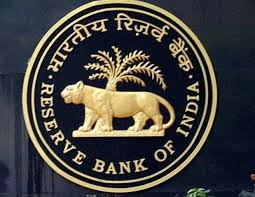 The Reserve Bank of India is set to cut interest rates on Tuesday for the third time in 2015 as inflation has eased enough to allow the central bank to provide more help for an economy seen struggling with patchy economic growth.
The Reserve Bank of India is set to cut interest rates on Tuesday for the third time in 2015 as inflation has eased enough to allow the central bank to provide more help for an economy seen struggling with patchy economic growth.
India is the fastest-growing major economy in the world, outstripping China, but economists say the data is not consistent with other indicators showing slack in Asia’s third largest economy.
A rate cut would need to be accompanied by steps to boost liquidity, according to bankers who say tight cash conditions are preventing them from lowering lending rates.
Still, the RBI could temper any action with measured language, given concerns about lower-than-expected rainfall in the monsoon season and uncertainty about when the US Federal Reserve will start raising interest rates.
The RBI has also made rate cuts contingent on government action to deliver substantial reforms, such as fixing the country’s creaky infrastructure. That has sparked uncertainty now that Prime Minister Narendra Modi’s administration is struggling to pass major measures through Parliament.
“We expect the RBI to cut the repo rate by 25 basis points, but the tone of the statement will be cautious on the inflation trajectory,” said Soumya Kanti Ghosh, State Bank of India’s chief economic adviser.
Since the RBI held rates steady at its last policy review in early April, consumer price inflation has eased to a four-month low of 4.87 per cent, in line with the RBI’s mid-term targets.
Analysts argue inflation data should give the RBI enough comfort to cut rates again and reverse the three rate hikes delivered by Governor Raghuram Rajan from September 2013 to January 2014 when India was suffering from double-digit inflation. Instead, economists say bolstering growth should become the bigger imperative given dismal corporate earnings, weak industrial activity, and an elusive recovery in bank credit.
India’s economy grew 7.5 per cent in the January-March quarter from a year earlier – faster than China’s 7 per cent expansion – but economists have raised questions about the accuracy of a new method to measure economic activity.
Further rate cuts would put India in a similar monetary path to China, which earlier in May cut interest rates for the third time in six months. Bankers are also lobbying for smaller measures to free up cash in the financial system, including easing the amount of funds that must be locked up at the RBI every day.
Rajan has expressed frustration that banks have yet to substantially cut their lending rates, disrupting monetary policy transmission.

